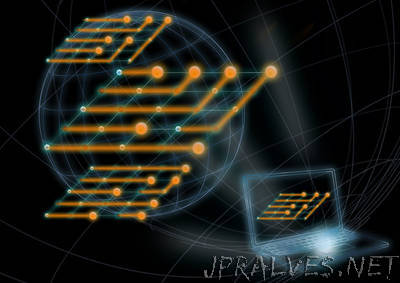
“Researchers in Singapore and Australia suggest you could operate a quantum computer in the cloud without revealing your data or the program you’re running. Here’s the scenario: you have sensitive data and a problem that only a quantum computer can solve. You have no quantum devices yourself. You could buy time on a quantum computer, but you don’t want to give away your secrets. What can you do? Writing in Physical Review X on 11 July, researchers in Singapore and Australia propose a way you could use a quantum computer securely, even over the internet. The technique could hide both your data and program from the computer itself. Their work counters earlier hints that such a feat is impossible. The scenario is not far-fetched. Quantum computers promise new routes to solving problems in cryptography, modelling and machine learning, exciting government and industry. Such problems may involve confidential data or be commercially sensitive. Technology giants are already investing in building such computers – and making them available to users. For example, IBM announced on 17 May this year that it is making a quantum computer with 16 quantum bits accessible to the public for free on the cloud, as well as a 17-qubit prototype commercial processor. Seventeen qubits are not enough to outperform the world’s current supercomputers, but as quantum computers gain qubits, they are expected to exceed the capabilities of any machine we have today. That should drive demand for access. “We’re looking at what’s possible if you’re someone just interacting with a quantum computer across the internet from your laptop. We find that it’s possible to hide some interesting computations,” says Joseph Fitzsimons, a Principal Investigator at the Centre for Quantum Technologies (CQT) at the National University of Singapore and Associate Professor at Singapore University of Technology and Design (SUTD), who led the work. Quantum computers work by processing bits of information stored in quantum states. Unlike the binary bits found in our regular (i.e., classical) computers, each a 0 or 1, qubits can be in superpositions of 0 and 1. The qubits can also be entangled, which is believed to be crucial to a quantum computer’s power. The scheme designed by Joseph and his colleagues brings secrecy to a form of quantum computing driven by measurements. In this scheme, the quantum computer is prepared by putting all its qubits into a special type of entangled state. Then the computation is carried out by measuring the qubits one by one. The user provides step-wise instructions for each measurement: the steps encode both the input data and the program. Researchers have shown previously that users who can make or measure qubits to convey instructions to the quantum computer could disguise their computation. The new paper extends that power to users who can only send classical bits – i.e. most of us, for now. This is surprising because some computer science theorems imply that encrypted quantum computation is impossible when only classical communication is available. The hope for security comes from the quantum computer not knowing which steps of the measurement sequence do what. The quantum computer can’t tell which qubits were used for inputs, which for operations and which for outputs.”
Link to article
